Suan Dusit University (SDU) has played a leading role as a higher education institution that promotes public knowledge, awareness, and responsibility in the conservation of fresh-water ecosystems through active community outreach and learning engagement. The university emphasizes sustainable water management and responsible water use, seeking to integrate environmental education into local cultural practices. These initiatives are designed not only to strengthen community understanding of water conservation but also to generate tangible environmental and social impacts that support sustainable development in Thailand.
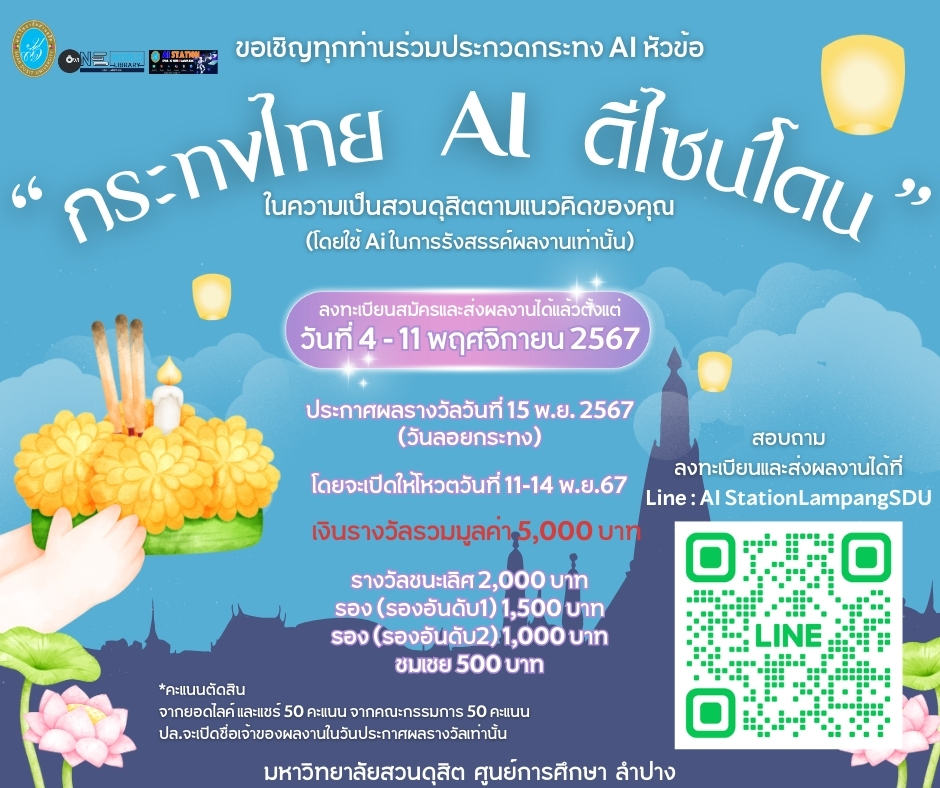
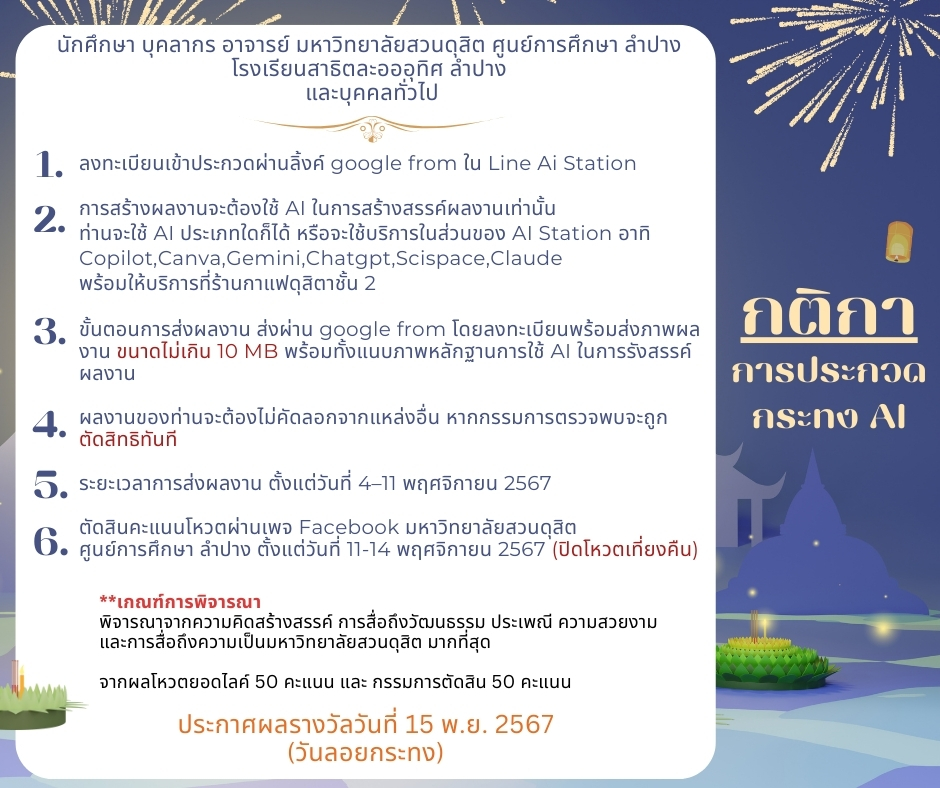
One of SDU’s signature activities in 2024 was the “AI Krathong Design Contest,” organized by the Lampang Education Center. This creative campaign invited students, staff, and the public to participate in designing virtual krathongs—digitally generated floating baskets—using artificial intelligence tools such as Copilot, ChatGPT, Canva, and Scispace. The project replaced traditional krathong floating, which often contributes to water pollution, with an innovative and sustainable alternative. By preventing waste from entering rivers and canals, the activity effectively reduced pollution in fresh-water ecosystems, while inspiring participants to rethink how cultural celebrations can coexist with environmental stewardship. The project served as a form of community-based environmental education, demonstrating how digital innovation can support pollution reduction and eco-conscious behavior within the community.
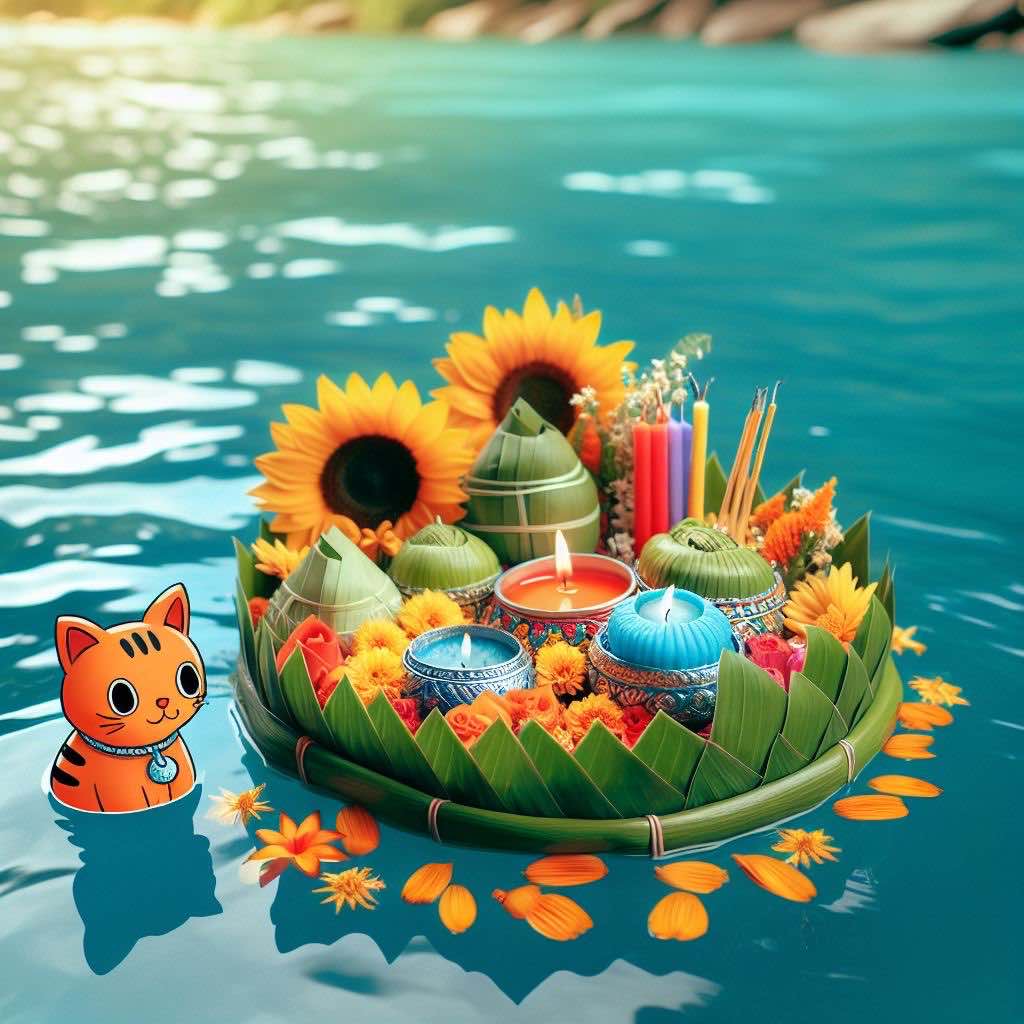
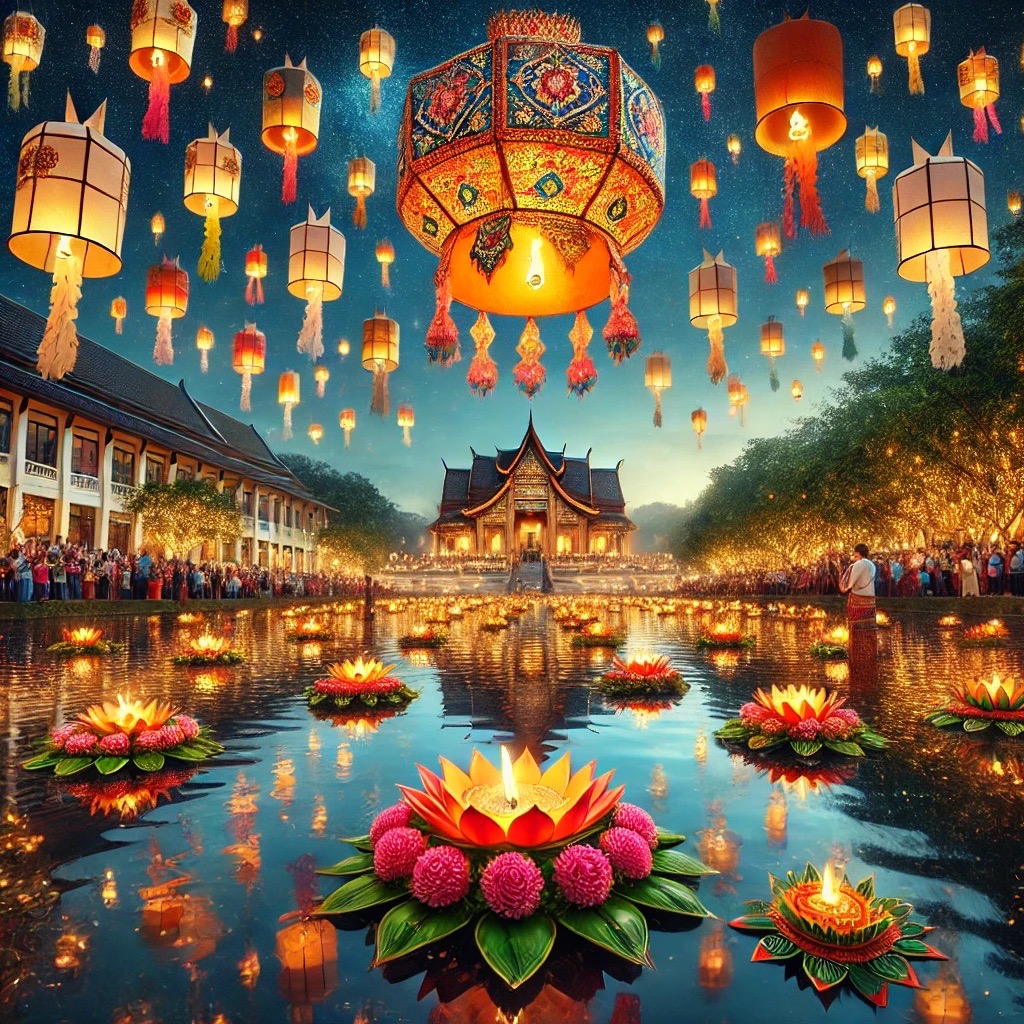
At the same time, the “Stories of the River Project,” implemented by Suan Dusit Demonstration School, Nakhon Nayok Center, engaged students, teachers, and parents in experiential learning activities to raise awareness of water resource conservation. Conducted on 15 November 2024, the event encouraged students to appreciate the environmental and cultural significance of Thailand’s water traditions. Learning stations featured recycled costume contests, DIY floating lantern workshops, krathong-making from banana leaves, Thai dessert demonstrations, and storytelling about the Loy Krathong festival. These activities promoted the use of biodegradable materials, proper waste management, and respect for local waterways. As a result, participants—especially young learners—developed practical understanding of water conservation and the interconnection between cultural heritage and fresh-water ecosystem sustainability.
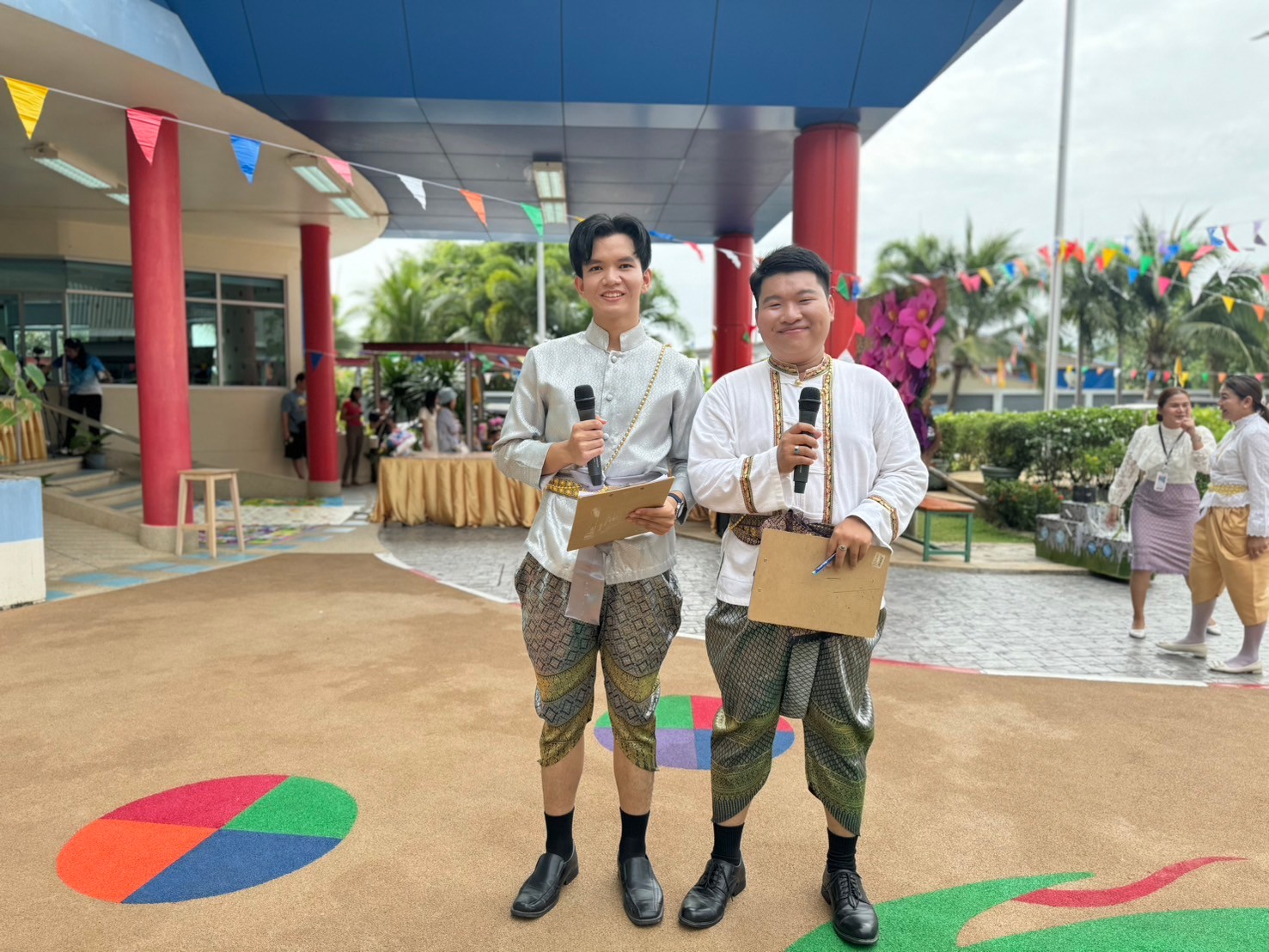
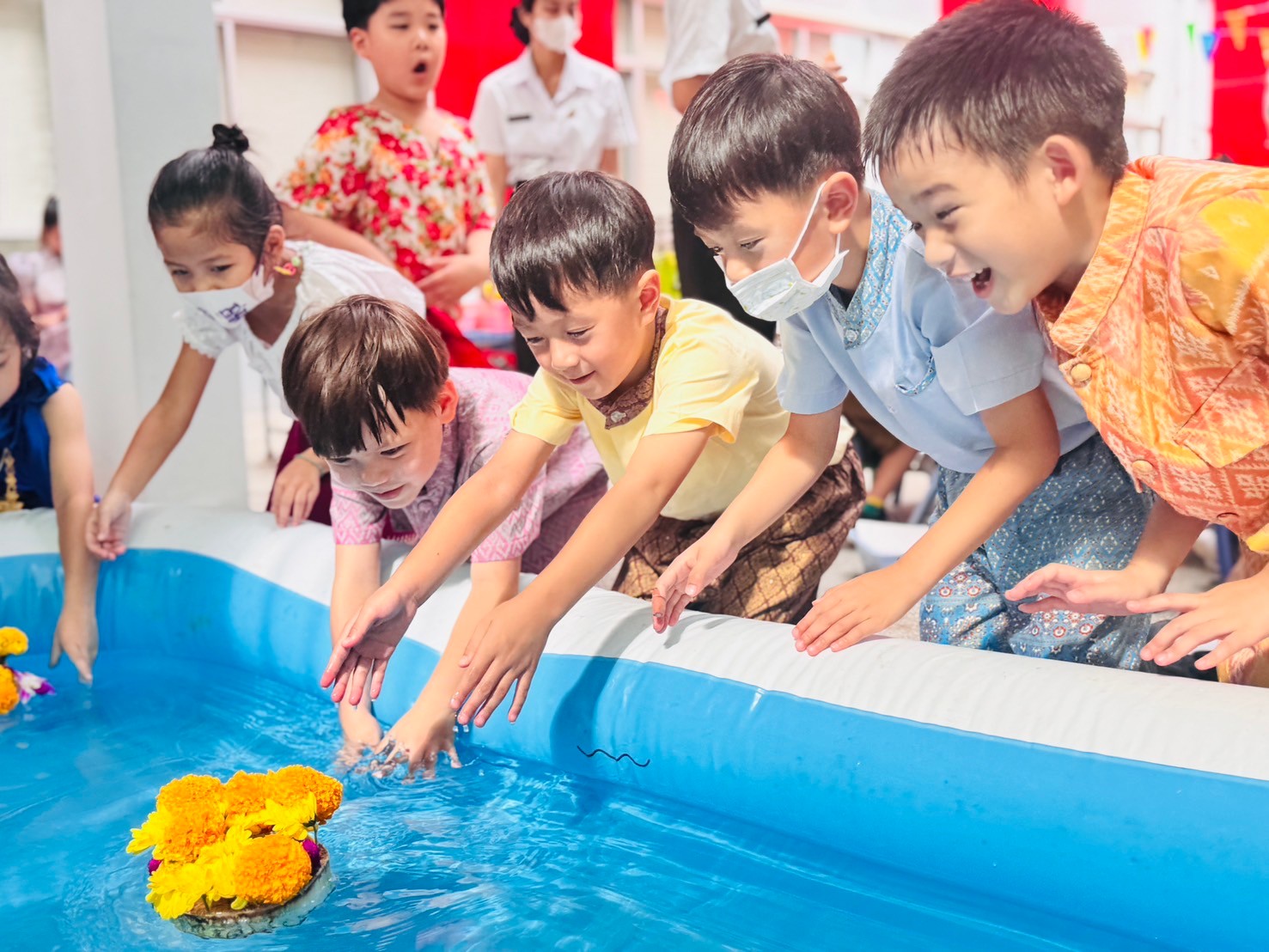
Both initiatives have generated measurable positive outcomes for the university and the surrounding communities:
- Environmental Impact: The AI Krathong activity directly reduced waste discharge and contamination in rivers, improving local water quality and preserving aquatic biodiversity.
- Educational Impact: Participants enhanced their understanding of sustainable water use, responsible consumption, and pollution prevention through hands-on and digital learning.
- Community Impact: Collaboration between the university, local schools, and families strengthened social bonds and built shared responsibility for protecting local waterways.
- Institutional Integration: The initiatives reflected SDU’s environmental mission under the “SDU Green and Clean Campus Policy,” integrating sustainability practices into education, culture, and community service.
The “AI Krathong Design Contest” and the “Stories of the River Project” stand as direct evidence of SDU’s commitment to protecting and restoring fresh-water ecosystems through innovative education and meaningful community engagement. These initiatives demonstrate how combining cultural wisdom with modern technology can cultivate environmental awareness and behavioral change at the grassroots level. By transforming traditional festivities into opportunities for sustainable water management and pollution reduction, Suan Dusit University has set a strong example of how higher education can drive community-based environmental transformation and strengthen the foundation for long-term sustainable development.
Reference
